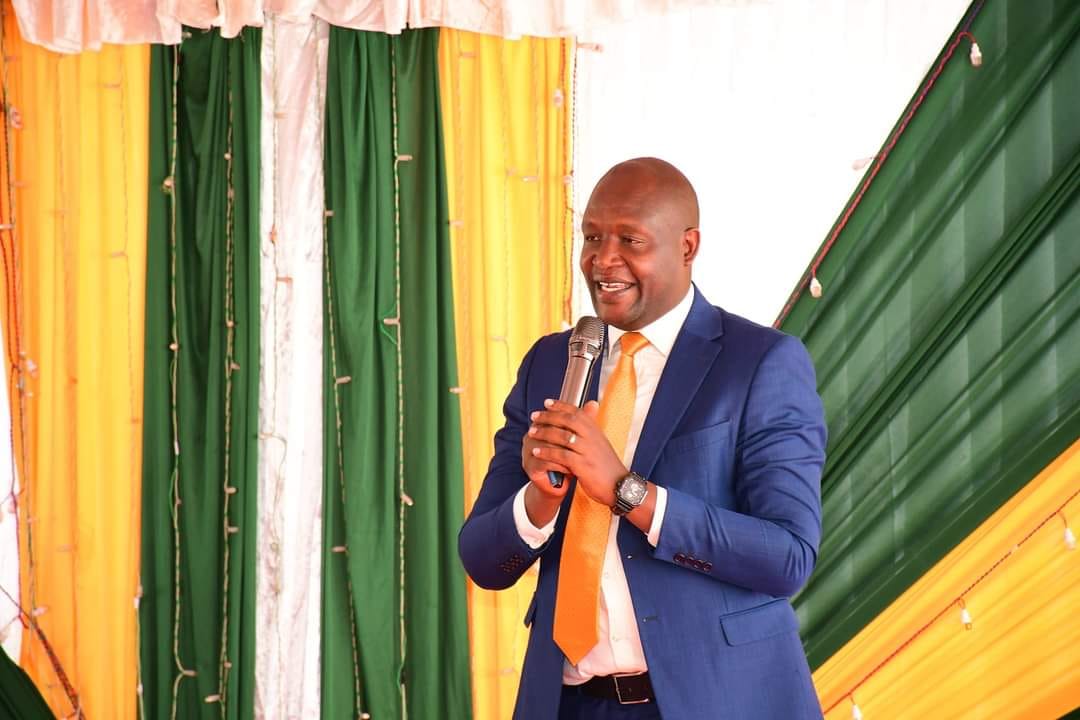The impeachment hearing of Kericho Governor Erick Mutai commenced at the Senate, focusing on whether the necessary legal threshold for his ouster was met.
This case has drawn attention due to its political and legal intricacies, as well as the serious allegations against the first-term governor, including gross violation of the Constitution, abuse of office, misappropriation of public funds, and indecent behavior.
Threshold Controversy
At the heart of the impeachment is the question of whether the impeachment motion, proposed by Sigowet Member of the County Assembly (MCA) Kiprotich Rogony, met the two-thirds majority required by law.
On October 2, 2024, 31 out of 47 MCAs voted to impeach Governor Mutai, while 16 boycotted the session in protest.
Governor Mutai’s supporters argue that the motion required 32 votes, falling one short of the threshold. On the other hand, Speaker of Kericho County Assembly Patrick Mutai maintained that the threshold was met, stating that traditionally, two-thirds of the assembly was considered 31 MCAs.
This discrepancy over the threshold is expected to be a major point of contention in the Senate hearing. Governor Mutai’s defense team, led by prominent lawyers Katwa Kigen and Manase Tunen, will focus on challenging the legality of the impeachment based on this issue. If the Senate agrees with the defense’s argument, the impeachment could be nullified.
Allegations Against Governor Mutai
Governor Mutai faces serious charges beyond the threshold debate. He has been accused of violating the Public Finance Management Act by misappropriating public funds and illegally drawing county revenue. He is also charged with engaging in inappropriate sexual conduct, including forcing a woman into unprotected sex. These allegations, combined with claims of persistent harassment and intimidation of county officers, have added to the gravity of the case.
The accusations of sexual misconduct have been particularly scandalous. According to the impeachment documents, evidence has been provided to support these claims, but the details are yet to be fully disclosed in the Senate. Governor Mutai’s conduct has been described as “scandalous and embarrassing,” raising questions about the integrity of his office, which is supposed to operate in line with the Constitution.
Court Orders Ignored
Before the impeachment, Governor Mutai’s legal team obtained two High Court orders: one barring MCA Kiprotich Rogony from tabling the impeachment motion, and another preventing the county assembly from entertaining it.
Additionally, the Speaker of the County Assembly was ordered not to transmit the impeachment resolution to the Senate. However, these court orders were ignored, and the impeachment process continued, leading to today’s Senate hearing.
This disregard for court orders has introduced another layer of complexity. Senators will need to assess whether the impeachment process followed legal procedures or if it violated judicial directives, potentially rendering the ouster process invalid.
Political and Legal Ramifications
The impeachment has sparked significant debate, with Governor Mutai’s supporters accusing his political opponents of engineering a “political lynching.” Kapsoit Ward Representative Paul Chirchir and other MCAs allied with Mutai argue that the impeachment is politically motivated, and they have called on the Senate to approach the case objectively. They insist that the governor’s opponents sensationalized the charges for political gain rather than legal justice.
On the other side, Governor Mutai’s critics, led by MCA Rogony, argue that the governor’s behavior has been unbecoming for a public official and that he must be held accountable.
What’s at Stake?
The impeachment hearing is a legal battle and a significant political showdown. If the Senate upholds the impeachment, it will set a precedent for holding governors accountable for misconduct. However, if the impeachment is nullified, it could raise concerns about the application of legal thresholds and judicial oversight in county assemblies.
The outcome of the hearing will either reinforce or undermine Governor Mutai’s leadership, with far-reaching implications for governance and political dynamics in Kericho County.
Share this content:

